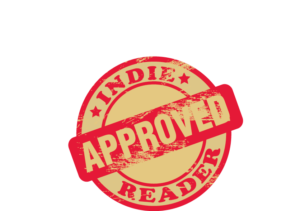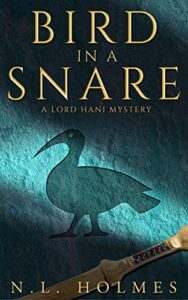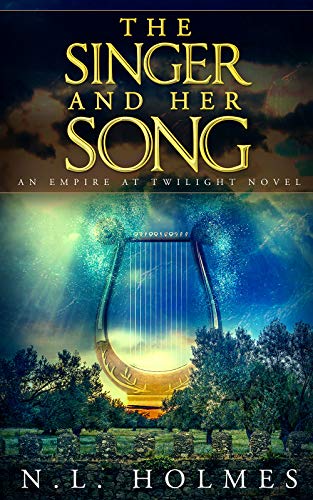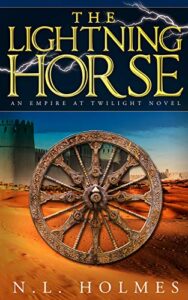
The Singer and Her Song received a 4+ star review, making it an IndieReader Approved title.
Following find an interview with author N.L. Holmes.
What is the name of the book and when was it published?
The Singer and Her Song was published June 14, 2020, although it was written several years ago.
What’s the book’s first line?
“What distinguished evening from day was the silence, Uqnitum realized as she stirred the watery soup that was meant for dinner.”
What’s the book about? Give us the “pitch”.
It’s the story of Uqnitum, a famous singer from the kingdom of Mitanni, who is captured and enslaved with her family when the Assyrians conquer her country. Already damaged by a cold, demanding father and traumatized by the death of her son and husband, she finds refuge at the court of Ugarit along with her pregnant daughter. But the torments are not over: Uqnitum carries within her enough anger and defensiveness to make herself and those around her miserable. She must understand the lessons her life wants to teach her, and discover that seeming weakness is often the greatest strength.
What inspired you to write the book? A particular person? An event?
I wrote it when the Syrian refugees and the horrors they had to undergo were in the news every day. I thought about how such atrocities had existed since the beginning of mankind and how they must have traumatized those who suffered through them. I found another moment when refugees were fleeing Syria only to find they had not outrun their sorrows, and that’s how Singer came to be. I made her a musician because music is one of the few aspects of Mitannian life we know anything about.
What’s the main reason someone should really read this book?
If you like emotionally intense studies of a person’s soul that ends with a redemptive insight, you’ll like this.
What’s the most distinctive thing about the main character? Who-real or fictional-would you say the character reminds you of?
Uqnitum is afraid of weakness, intolerant and contemptuous, but it’s all in defense of a love-starved, insecure core. She’s fictional, although there are moments where the emotional resonances reflect some I’ve experienced in very different circumstances (mercifully!).
If they made your book into a movie, who would you like to see play the main character(s)?
Meryl Streep! She’s such a great actress and can play damaged characters so well.
When did you first decide to become an author?
I’ve always loved books, and I guess in the back of my mind all along was the idea of writing one myself. What finally triggered me was a class I taught on Ancient Near Eastern Empires. I gave my students the few documents we had that described a certain royal divorce and told them to try to figure out what happened. It was clear that almost anything we could reconstruct was as much fiction as historiography, so I decided to fill in the blanks with novelizing.

No. I think this was number two or three. There are now eight of them, not all published yet.
What do you do for work when you’re not writing?
I’m retired now, but I’m an archaeologist by training. I taught ancient history and humanities at a state university.
How much time do you generally spend on your writing?
With the safer-at-home business, I easily spend twelve to sixteen hours a day at the computer. I can write a first draft in between six weeks and two months. But then, there’s the sit-on-it period and the endless revisions!
What’s the best and the hardest part of being an indie?
The writing is the fun part. You don’t have to please anybody but yourself or do that “x-book meets y-book” stuff. It’s the publicity and the social media that are a killer! I’ve had to learn on the fly, and the curve has been pretty steep. I’m not sure my efforts are very efficient even now. Self-promotion is not my shtick.
What’s a great piece of advice that you can share with fellow indie authors?
Forget the old idea that there’s some stigma attached to it. This has been hard for me, I confess. But over a million indies are published every year now, and many of them are superb. Institutional recognition has become so much more inclusive.
Would you go traditional if a publisher came calling? If so, why?
Yes. I love the freedom to decide on covers and format and to be able to upload revised versions easily that being independent gives you, but if anybody professional could take over some of the promotion, I’d be all over them!
Is there something in particular that motivates you (fame? Fortune?)
My motive is the same as my motive as a teacher: to convince modern readers that the people of the past were human beings just like us.
Which writer, living or dead, do you most admire?
Yow! Let’s say I love slow-burn interior books (Strout, Erdrich, Robinson) and all the nineteenth century realists, French and English. Since most of my books are whodunnits, I have to put Penny and Leon in there.
Which book do you wish you could have written?
Germinal by Emile Zola. It was the most horrifying, powerful thing I’ve ever read. Some of those nightmarish images of the coal mines will be in my mind forever.

